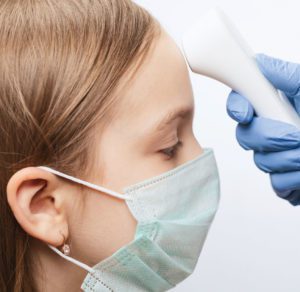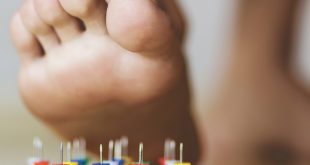BayCare Medical Group Pediatrics
 With all of the news pointing to a second wave of the Novel Coronavirus, we wanted to get insight from the medical community for children and their safety. We spoke to one of BayCare’s physicians, Dr. Marsha Ramsay, a pediatrician about her advice for pediatric patients and their parents/caregivers throughout the community.
With all of the news pointing to a second wave of the Novel Coronavirus, we wanted to get insight from the medical community for children and their safety. We spoke to one of BayCare’s physicians, Dr. Marsha Ramsay, a pediatrician about her advice for pediatric patients and their parents/caregivers throughout the community.
Question #1—Face Coverings for Children
According to the Centers for Disease Control and Prevention, children two years and older should wear face coverings when they are in the community setting. What tips do you offer parents to help children want to wear masks and to keep them on?
Dr. Ramsay: Certainly, it’s more difficult for the younger aged children from preschool to kindergarten to understand the need to wear face coverings. However, most children will model our behaviors as caregivers and parents or others who are close to them. I find it beneficial to offer mask choices if possible, such as color or graphics, to get the kids interested and excited about them.
All face coverings must be age-appropriate and sized correctly for children. I want to make it clear that they are not for children under the age of two, those that have trouble breathing, or those that would not be able to take it off.
Question #2—Back to School Concerns
Dr. Ramsay, although we’re not clear on whether or not kids will head back to the classroom in the fall, there is a level of concern for parents trying to keep their kids safe. When children head back to school or attend other activities such as scouts and sports, what advice do you provide parents to keep their children safe?
Dr. Ramsay: It’s most essential for school settings to have kids spaced far enough away from each other, at least six feet. When that is not possible and kids are physically close, those are the most important times to wear face coverings.
We also don’t want children’s desks facing each other, and in the same light, we don’t want children sitting around a table facing each other. Schools should modify classroom settings to maximize distancing and provide a safe and healthy environment.
If there is a line of children waiting, they should be appropriately spaced away from each other at a safe distance. Hand sanitizer, sanitizing wipes, soap, and paper towels should be readily available. Parents might want to send their children to school with their own supply as well.
We don’t want children drinking out of the water fountain if possible. It’s a better idea to send your child to school with an adequate supply of water in a thermos or bottle. Another way to limit cross-contamination is to have touch-free trash cans with foot pedals. Teaching your children proper hygiene is essential; for example, explaining why they shouldn’t put their hands in their mouths or eyes and why keeping their hands clean is important.
I can’t reiterate enough how important it is to stay home if you were recently around a sick person, or if you have symptoms of fever, cough, gastrointestinal disorder, or other COVID-19 related issues.
Question #3—In-Office Protocols
What precautions are you taking in your office to keep staff and families safe?
Dr. Ramsay: Our office has implemented rigorous protocols to keep our patients safe. From heightened disinfection practices to new distancing guidelines, we are taking great lengths to make a healthy environment for our staff, the caregivers, parents, and their children. We require everyone in the office to wear masks including patients and parents.
We no longer have patients in the waiting room. Patients come in with only one caregiver or parent and are immediately taken to a room for evaluation. We also have separate well and sick visit times. We only see well patients for routine exams and vaccinations, etc. in the morning. The afternoon is set aside for ill patients.
We also highly recommend that sick patients be seen via telemedicine if and when possible.
Dr. Marsha Ramsay, M.D. Board Certified Pediatrician
Marsha Ramsay is a considerate and detail-oriented pediatrician serving the community of Tampa, Florida. Dr. Ramsay attended Florida State University, where she received her medical degree. Dr. Ramsay is a part of BayCare Medical Group. She is board certified by the American Board of Pediatrics. During her consultations, Dr. Ramsay fully explains patients’ conditions and helps them choose an appropriate treatment plan. Dr. Ramsay is sensitive to the uniqueness of each patient’s situation and adapts her consultations and treatment options appropriately to accommodate individual needs and concerns.
About BayCare Medical Group
BayCare Medical Group is Tampa Bay’s leading multi-specialty group providing primary and specialty care throughout the Tampa Bay and west central Florida regions. As part of the BayCare Health System, these passionate and compassionate physicians extend the mission of BayCare to provide extraordinary care for every patient, every time, everywhere.
Locally and nationally recognized as a 2018-2019 Great Place to Work® and Fortune 100 Best Companies to Work For®, BayCare Health System is a not-for-profit 501(c)(3) organization, with a network comprised of 15 hospitals with services including imaging, lab, behavioral health, home health care and urgent care. Our priority is connecting patients to a complete range of preventive, diagnostic and treatment services for any health care need, throughout their lifetime. For more information, visit BayCareMedicalGroup.org.
To schedule your appointment, visit BMGKids.org or please call (813) 870-3720.
BayCare Medical Group Pediatrics
2506 W Virginia Ave
Tampa, FL 33607
(813) 870-3720
 Central Florida Health and Wellness Magazine Health and Wellness Articles of the Villages
Central Florida Health and Wellness Magazine Health and Wellness Articles of the Villages
